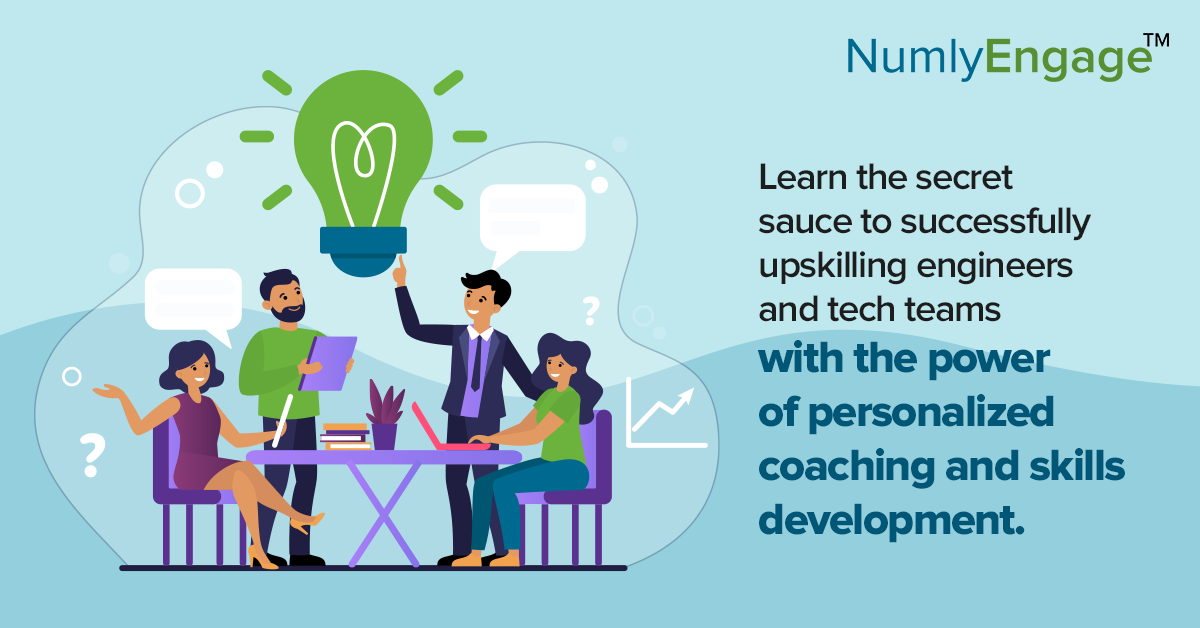It’s been almost a year since the COVID-19 pandemic made its announcement and completely upended business operations and working patterns. The grand scale of the global Work-From-Home transition, and the subsequent onus on digital transformation to navigate this new world of work, has led most organizations to accelerate their upskilling initiatives.
Upskilling, incidentally, has been a major topic of conversation from the pre-pandemic days. Organizations are being compelled to re-evaluate upskilling strategies to make sure that these initiatives can help them traverse the COVID-induced uncertainty. They need to ensure that their employees remain relevant and can productively and positively contribute to the bottom line.
While upskilling is about increasing competency, it is more about improving resilience to face a competitive and volatile market. The pandemic has further emphasized the need for digital transformation, especially as resilient futures become directly proportional to the acquisition of new and more relevant skills.
Upskilling initiatives need coaching
“Upskilling”, simplistically, is defined as the act of teaching (an employee) additional skills. In today’s business narrative this means ensuring that the employees learn new skills as technology offers new opportunities that need new skill sets.
Upskilling initiatives are thus more than efforts to merely keep your employees up-to-date on the latest technology. For upskilling to deliver the desired outcomes, organizations have to make sure that they are designed to not only increase know-how but also improve overall performance and business outcomes.
When coaching meets upskilling
Upskilling has to deliver impactful and sustainable change. And for that, coaching becomes imperative as it delivers the following:
Better employee outcomes
Upskilling efforts are directed towards making employees more knowledgeable and improving their technical dexterity as we move into the future of work. However, along with know-how, the employees also need to manage the change these new skills will bring into their lives.
Coaching not only improves knowledge levels but also helps employees understand how this change is relevant and important for their careers. Coaching brings clarity of thought and understanding to employees and helps them apply the knowledge to their job roles more easily and comprehensively.
Improved retention
Millennials and Gen Z are now the dominant part of the workforce. Motivated by growth and opportunities, these generations want organizations to be invested in their growth story. Making upskilling initiatives coaching-focused helps organizations demonstrate their investment in employee growth and helps in driving better employee engagement.
This type of investment makes the employee feel valued and helps them become better prepared to successfully fulfill their job roles. This effort, in turn, drives employee investment in the organization and helps prevent attrition as employees do not scour around for ‘better opportunities.’
More contextual
In today’s day, ‘context is king’, especially as we work with the millennials. By leveraging new-age technologies such as AI, organizations can leverage coaching platforms that help them drive context and make their programs more relevant for their employees. Using data-driven assessments, organizations can identify learning and knowledge gaps and help employees embark on their learning journeys. AI-powered coaching platforms can pair the right coach with the right employee, to drive impactful coaching conversations.
Upskilling employees also demands them to understand how their job roles will change and provides the direction to help them become more collaborative. This is essential since technology expertise has to be complemented with essential power skills like collaboration, communication, out-of-the-box thinking, and other essential traits that drive productivity, innovation, and ultimately, business outcomes. Such behavioral skill development that drives lasting change can only be achieved by building powering up upskilling initiatives with coaching.
Continuous and ongoing
Unlike traditional (one-time) training programs, coaching is a continuous and ongoing process, and hence, it becomes more impactful in driving and implementing change. Coaching is information-driven but is not just instructional and passive. It is more comprehensive and helps employees become future-ready by helping them understand and adapt to the new ways of work.
The ongoing nature of coaching becomes all the more beneficial as employees receive the right guidance at the right time and thereby capably manage the challenges that keep them from reaching their optimum potential. It is because coaching is continuous and ongoing that employees can rewire and reprogram themselves to navigate challenges and align their job roles with organizational goals with greater clarity.
Powering up coaching programs with coaching is almost like that silver bullet to help traverse this new world of work. By connecting the right coach with the right learner, organizations can capably build a bridge of trust with the employee to show their investment in employee growth.
Coaching also allows for clear, actionable, and proactive feedback that points out areas of improvement. AI-powered coaching platforms like NumlyEngage™ can provide timely nudges based on skill-level data. All of these factors help impact upskilling outcomes positively and ensure that that the workforce is future-ready in the truest sense of the term.
Contact us of experts to create fool-proof, outcome-driven upskilling initiatives by diving into the coaching universe and consequently keeping your workforce engaged and skilled at the same time.

